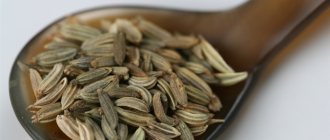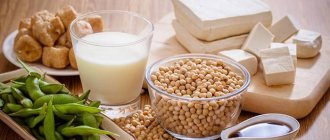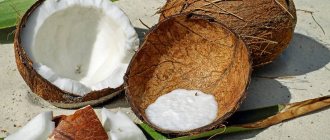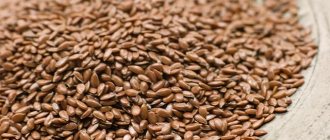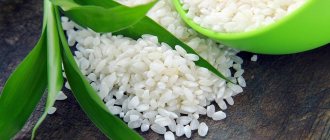Beneficial properties of sesame oil
This vegetable oil will be useful for the following applications:
· when removing excess toxins from the body and skin;
· to relax the nervous system of the body;
· oil components activate brain function, increase concentration, improve memory;
· for pregnant women acts as a substance that removes stretch marks on the abdomen;
· makes ligaments and muscles elastic;
· thanks to the pleasant aroma, the impact of stress is reduced and mood improves;
· increases the density of tooth enamel;
· rubbing your temples can relieve headaches and migraines;
· to nourish the skin during massage;
· strengthens blood vessels, cleanses them of cholesterol.
A few words about manufacturing methods
Vegetable oil can be refined or unrefined, made by hot or cold pressing of seeds - which is healthier?
- During hot pressing,
the seeds are first crushed and fried, and then put under pressure. The final product acquires a bright aroma, but loses some of the nutrients. - When cold
, the seeds are pressed in their entirety and raw form (therefore, the resulting oil is also called raw-pressed). All useful substances are preserved with this method. - Refined oil
is an excellent option for frying, because when refined, it removes substances that form soot and soot at high temperatures. But along with them, the product loses phospholipids (sources of phosphorus) and a significant portion of free fatty acids and vitamins A and E. - Unrefined
oil contains all these substances, so you should not fry with it, but it is ideal for salads.
Hemp oil, 250 ml, Elfa
528 ₽
Dietary supplement NOT A MEDICINE
If we leave culinary delights aside and talk only about the benefits, then it is best to use raw, unrefined vegetable oil.
What to look for before buying sesame oil
Sesame seed oil is considered an elite product, but even in this case, you can find counterfeit and vegetable oil made from low-quality raw materials. Before purchasing sesame oil in a store, you should pay attention to the following nuances:
· Region of production. Today, real oils can be considered those that are imported from the countries in which this herbaceous crop is grown. As a rule, these are India, Central Asia, the Caucasus, Iran and a number of other eastern countries.
· Price category. Natural oil will not be cheap. The product can contain diluted chemical components at a relatively low price.
· Product labeling. You should study the sesame oil label in detail. It must have the inscription “Sesame Oil” in Latin letters. The name of the raw material from which the oil is made must also be indicated - “Sesamum indicum”.
Obvious benefits for humans and possible harm
It is no secret that the use of sesame oil in cooking, as well as traditional medicine, makes it possible to perfectly maintain health, speed up metabolism, and also protect against many chronic ailments in the future. All this is achieved thanks to a complex effect on the body. Freshly squeezed sesame oils are beneficial at almost any age.
Benefits for men
Every male should consume fairly large amounts of zinc and fatty acids daily. Without this, it is almost impossible to maintain the necessary activity of hormonal metabolism, spermatogenesis and the health of the reproductive system. The oil contains all these substances in abundance, which is what the male body needs. At the same time, just a few teaspoons of sesame oil will make it possible to protect the reproductive system from all kinds of age-related dysfunctions and pathologies.
Positive effect on women's body
This oil can easily support the female body. Thanks to its powerful medicinal properties, it is possible to easily protect the female reproductive system from most disorders. The product is especially recommended for inflammatory pathologies of the ovaries and uterus. Regularly using sesame oils can reduce the likelihood of cancer in this area. During menopause, oil can reduce the risk of developing osteoporosis.
Particular benefits from sesame oils are observed during pregnancy. They easily supply the body of the mother and the baby developing in the womb with the necessary amount of calcium and iron. Therefore, the use of oils can significantly reduce the risk of pathologies of the musculoskeletal system, as well as prevent anemia.
Use in children's diet
It is recommended to supply children with sesame seed oil to combat various pathologies of the skeletal system. Due to the abundance of fatty acids, the substance allows you to accelerate and optimize the development of the child’s brain. In adolescence, thanks to its healing properties, sesame seed oil can completely prevent the development of anemia and other age-related diseases associated with iron deficiency.
Possible harm
Despite the fact that sesame oil is considered the most valuable gift of nature, in some cases it can cause irreparable harm to health, causing many chronic and acute ailments. That is why sesame oil is not recommended for people with allergies to nuts and related oilseeds. It should also be taken into account that sesame oil has the ability to increase blood clotting, so it is prohibited to use it if varicose veins are diagnosed and there is a high probability of thrombosis.
At the same time, every healthy person must adhere to the daily dose of sesame oils:
- adult women and men can take no more than 3 teaspoons of sesame oil per day;
- Children under 3 years old are given sesame oil 3 drops per day;
- children under 10–13 years of age should add a maximum of 10 drops of the product per day to their diet;
- Teenagers can take no more than 1 teaspoon per day.
What does sesame oil treat and how does it help?
This vegetable oil has a wide range of medicinal properties. It can be used as:
· Anti-inflammatory agent that eliminates dry cough, viral infections, and pulmonary diseases.
· Source for normalizing the digestive tract and improving metabolism. It heals ulcers, increases gastric motility, and has a good effect on the functioning of the liver and pancreas.
· Laxative. It is very useful for people suffering from stool problems; sesame oil can also get rid of worms.
· A means to improve the functioning of the cardiovascular system. The product increases the number of platelets in the blood and improves clotting. It has a beneficial effect on circulatory disorders and various pathological heart diseases.
How to store at home?
Manufacturers of natural products have extended the shelf life by using sealed packaging. With the help of tightly closed bottles, the product is protected from external influences of negative factors. The factory-produced product is suitable for consumption for up to two years.
When sealed, the product can retain its beneficial qualities for up to 60 months. After opening the bottle, the period of use is reduced to six months. The main tip on how to store sesame oil is to place the bottle in a dark room with a low temperature.
Use of sesame oil on the farm
Sesame oil also has cosmetic properties. It can be used for household purposes, hair care, body care, and as a means for rubbing during massage.
This product can also be useful for household purposes. For example, lubricate squeaky doors, stuck zippers, add shine to leather products and prevent this material from cracking. You can lubricate the fur of your pets with this oil; the components of sesame seeds have a beneficial effect on the organs and skin of animals, so this product will not cause any harm.
Sesame is interesting
Photo: https://pixabay.com/photos/sesame-sesame-seeds-seeds-bowl-1274906/
In Latin the plant is called Sesamum. Translated from Assyrian, “sesame” means “oil tree,” which mainly grows in Africa and is not afraid of drought. Its large white flowers, somewhat reminiscent of bells, turn into fruit ovaries after pollination and flowering. The ripe fruit is an elongated tetrahedral capsule, which, when ripe, bursts with a loud click and opens almost to the very base. It is in this very box that the sesame seeds are hidden.
Sesame seeds are very small, and you yourself have seen them on baked goods. They are actively used in cooking, making delicious tahini paste, which is very common in the Middle East as a base for various sauces. And of course, they press the healing oil, which is used for salads, as well as for medicinal and cosmetic purposes.
Depending on the plant variety, the seeds may be white or black. And if whites are well known to us all, then not everyone has even heard of the existence of blacks, let alone seen. What is their difference?
Dark seeds are definitely healthier than light ones, since they contain more useful substances. Accordingly, black sesame oil will cost more than that pressed from white seeds. They also taste different. The white ones have a nutty flavor and go well with sweet baked goods, while the black ones are more suitable for pickling and canning, since their taste is tart and the smell is sharp and strong. Both types are very popular in salads, sauces and dressings.
Before battle, Roman legionaries strengthened their strength with a mixture of sesame oil and honey. Try it, this is a very interesting flavor combination. The Romans also ground the seeds with cumin and spread the resulting paste on bread. And the ancient Egyptians ground sesame and used it as flour.
Nowadays, sesame seeds are sprinkled on baked goods, but after heat treatment it loses almost all of its properties, so it is better to buy raw seeds and chew them thoroughly, or it is better to add sesame oil to the salad, which has a pleasant aroma and does not change the natural taste of the ingredients.
Chemical composition
Sesame seeds have a rich composition; let us first highlight the most important components.
- Retinol. It is a natural antioxidant that prevents and slows down the oxidative processes of cells, keeping them young and healthy, and protects the body from excess free radicals.
- Sesamin. Reduces blood pressure, protects the liver, improves skin and hair, burns fat.
- Tocopherol (vitamin E). Strengthens blood vessels, prevents the formation of thrombosis, facilitates the supply of oxygen to the body.
- Calcium and zinc. Promotes growth and strengthening of bones.
- Iron and selenium. They have a beneficial effect on the hematopoietic system.
- B vitamins. Calm the nervous system and play an important role in cell metabolism.
- Magnesium. It is a unique supplier of energy to the body, dilates blood vessels, stimulates the outflow of bile and intestinal motor activity, and removes cholesterol.
Sesamin is a rare phenolic compound of plant origin.
Found only in sesame and flax seeds. It has anti-inflammatory and antioxidant properties, and is also an effective fat burner. The energy value is 565 Kcal per hundred grams of product. Proteins – 19.4 g, fats – 48.7 g, carbohydrates – 12.2 g.
Nutrients table
Photo: https://pixabay.com/photos/spices-background-sesame-3331974/
A more detailed content of nutrients in sesame is presented in the table.
| Nutrient | Quantity per 100 g of product | Daily norm |
Vitamins | ||
| A, RE | 3 mcg | 900 mcg |
| Beta carotene | 0.04 mg | 5 mg |
| B1, thiamine | 1.27 mg | 1.5 mg |
| B2, riboflavin | 0.36 mg | 1.8 mg |
| B4, choline | 25.6 mg | 500 mg |
| B5, pantothenic | 0.68 mg | 5 mg |
| B6, pyridoxine | 0.146 mg | 2 mg |
| B9, folate | 96 mcg | 400 mcg |
| E, alpha tocopherol, TE | 2.3 mg | 15 mg |
| N, biotin | 1.9 mcg | 50 mcg |
| K, phylloquinone | 0.3 mcg | 120 mcg |
| RR, NE | 11.1 mg | 20 mg |
| Niacin | 4 mg | ~ |
Macronutrients | ||
| Potassium, K | 497 mg | 2500 mg |
| Calcium, Ca | 1474 mg | 1000 mg |
| Silicon, Si | 199 mg | 30 mg |
| Magnesium, Mg | 540 mg | 400 mg |
| Sodium, Na | 75 mg | 1300 mg |
| Sera, S | 169.6 mg | 1000 mg |
| Phosphorus, Ph | 720 mg | 800 mg |
| Chlorine, Cl | 21 mg | 2300 mg |
Microelements | ||
| Aluminium, Al | 50 mcg | ~ |
| Bor, B | 37 mcg | ~ |
| Vanadium, V | 54.7 mcg | ~ |
| Iron, Fe | 16 mg | 18 mg |
| Yod, I | 7.1 mcg | 150 mcg |
| Cobalt, Co | 2 mcg | 10 mcg |
| Lithium, Li | 77 mcg | ~ |
| Manganese, Mn | 1.427 mg | 2 mg |
| Copper, Cu | 1457 mcg | 1000 mcg |
| Molybdenum, Mo | 15 mcg | 70 mcg |
| Nickel, Ni | 190 mcg | ~ |
| Rubidium, Rb | 11.8 mcg | ~ |
| Selenium, Se | 34.4 mcg | 55 mcg |
| Strontium, Sr | 17 mcg | ~ |
| Titanium, Ti | 5.9 mcg | ~ |
| Fluorine, F | 3 mcg | 4000 mcg |
| Chromium, Cr | 5.8 mcg | 50 mcg |
| Zinc, Zn | 10.23 mg | 12 mg |
| Zirconium, Zr | 2.8 mcg | ~ |
| Saturated fatty acids | 6.6 g | max 18.7 g |
| Monounsaturated fatty acids | 19.5 g | from 18.8 to 48.8 g |
| Polyunsaturated fatty acids | 19.6 g | from 11.2 to 20.6 g |
| Omega-6 fatty acids | 19.6 g | from 4.7 to 16.8 g |
